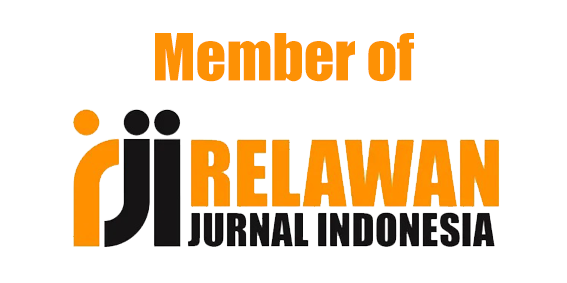Islamic Legal Perspectives on the Time Value of Money and the Economic Value of Time: A Study of DSN-MUI Fatwa No. 153/2022
DOI:
https://doi.org/10.24256/alw.v10i2.8023Keywords:
Islamic FInance, fiqh muamalah, economic value of time, MurabahahAbstract
Purpose - This study was conducted to clarify common misconceptions in understanding the distinction between the time value of money theory and the economic value of time theory in relation to DSN Fatwa No. 153/DSN-MUI/VI/2022 on the Early Settlement of Murabahah Financing, particularly with reference to the fiqih principle inna li al-zamani hisshotan min al-tsaman.
Methods - This research constitutes a library study employing a normative approach in examining statutory regulations, scholarly books, classical fiqh works, DSN-MUI fatwas, and other relevant literature pertaining to the subject of this thesis. A descriptive analytical method was applied to elaborate on the central theme, providing an in-depth explanation based on the facts identified by the researcher.
Results - The results of the research show that DSN’s Fatwa No. 153/DSN-MUI/VI/2022—specifically the fiqh principle inna li al-zamani hisshotan min al-tsaman—accommodates the theory of the economic value of time, rather than the time value of money. This conclusion is substantiated through a comparative analysis of several aspects shared between the economic value of time theory and the fiqih principle, namely: the role of money, the role of time, tangible assets/real effort, the distinction between cash and deferred prices, the practice of discounts, and the moral/maslahah dimension.
Implications - As a practical implication, the results of this research can be used as a reference for the wider public and, more specifically, for financial practitioners, in order to avoid misinterpretations regarding the distinction between the time value of money and the economic value of time. Such understanding is essential to accurately identify which theory is accommodated within the fiqh maxim inna li al-zamani hisshotan min al-tsaman as reflected in DSN Fatwa No. 23/DSN-MUI/III/2002 on Discounts for Early Settlement of Murabahah Financing.
References
https://repository.uinjkt.ac.id/dspace/bitstream/123456789/83696/1/11210490000024_Ali%20Sajad.pdf
Source Book:
Al-Arif, M. Nur Rianto, Teori Makroekonomi Islam: Konsep, Teori dan Analisis, Bandung: Alfabeta, 2010.
Al-Kamil, Umar Abdullah. al-Qawaid al-Fiqhiyyah al-Kubra wa Atharuha fi al-Mu’amalat al -Maliyyah, Mesir: Jami’ah al-Azhar al-Syarif.
Al-Kasani, Imam Abu Bakar bin Mas’ud. Badai’ Ash-Shanai’ fi Tartib Asy-Syarai’, Beirut: Dar Al-Kutub Al-‘Ilmiyyah, 2003.
Al-Masri, Rafiq Yunus. al-Riba wa al-Ḥasm al-Zamani fī al-Iqtishad al-Islami, Damaskus: Dar al-Maktabi, 2009.
Al-Misri, Rafiq Yunus. Al-Bai' bi al-Taqsith, dalam Majallah Majma' al-Fiqh al-Islami, Juz 2. Dhahran: Ad-Daurah Ats-Tsaniyyah, 1992.
Antonio, Muhammad Syafi’i. Bank Syari’ah bagi Bankir dan Praktisi Keuangan, Jakarta: BI, 1999.
Bohm-Bawerk, Eugen von. The Positive Theory of Capital. New York: G.E. Stechert & Co., 1930.
Karim, Adiwarman A. Bank Islam: Analisis Fiqh dan Keuangan, Jakarta: Raja Grafindo Persada, 2004.
Mannan, M. Abdul. Teori dan Praktek Ekonomi Islam, terj. M. Nastangin. Yogyakarta: PT Dana Bhakti Wakaf, 1995.
Otoritas Jasa Keuangan, Pedoman Produk Pembiayaan Murabahah Perbankan Syariah, (Jakarta: Otoritas Jasa Keuangan, 2023), h. 3.
Source of Fatwa:
Fatwa DSN Nomor 04/DSN-MUI/IV/2000 Tentang Murabahah
Fatwa DSN Nomor 23/DSN-MUI/III/2002 Tentang Potongan Pelunasan dalam Murabahah.
Fatwa DSN Nomor 153/DSN-MUI/VI/2022 Tentang Pelunasan Utang Pembiayaan Murabahah Sebelum Jatuh Tempo.
Source of Journal Article:
Adigara, Angga and M. Lathoif Ghozali. (2023). “Analisis Fatwa No. 23/DSN-MUI/III/2002 Tentang Potongan Pelunasan Pembiayaan Murabahah Sebelum Jatuh Tempo Dalam Perspektif Al-Urf”. Jurnal Ilmiah Ekonomi Islam, 9(3), 3433–3444. https://doi.org/10.29040/jiei.v9i3.9792.
Adinugraha, Hendri Hermawan. (2017). “Penerapan Kaidah al-Ghunm bi al-Ghurm dalam Pembiayaan Musyarakah pada Perbankan Syariah”. Economica: Jurnal Ekonomi Islam, 8(1), 81-102. https://doi.org/10.21580/economica.2017.8.1.1827.
Ahmad, Ridzwan & Azizi Che Seman. (2009). “Using Maslahah of the Concept Time Value of Money in Islamic Banking System in Malaysia”, Journal of Fiqh, (6), 87-106. https://fiqh.um.edu.my/article/view/4190/2039.
Fajar, Deddy Ahmad. (2021). “Kajian Perbedaan Time Value of Money atau Economic Value of Time dalam Perspektif Syariah”. Jurnal Ilmiah Ekonomi Islam. 7(3), 1435–1440. https://doi.org/10.29040/jiei.v7i3.2624.
Fatoni, Ahmad Zaki. (2024). “Perdagangan Uang dalam Perpektif Islam”. Mu’amalat: Jurnal Kajian Hukum Ekonomi Syariah, 16(1), 1-16. https://doi.org/10.20414/mu.v10i2.2817.
Gambling, T.E. dan R.A.A. Karim. (1986). “Islam and Social Accounting”, Journal of Business Finance & Accounting, 13(1), 39-50. https://doi.org/10.1111/j.1468-5957.1986.tb01171.
Ilyas, Rahmat. (2017). “Time Value of Money dalam Perspektif Hukum Islam”. Jurnal Al-‘Adalah, 14(1), 157-180. https://doi.org/10.24042/adalah.v14i1.1991.
Jasmiko, Aryo, Shodini Putri Lestar, Lindy Arina Pramudita, Suci Marhania, Bella Sartika., Arin Ardianty, & Walid Syauq. (2024). Perbandingan Perlindungan Harta (Hifdz Al-Mal) antara Perbankan Syariah dan Konvensional. Journal of Economics and Business, 2(1), 87-98. https://doi.org/10.61994/econis.v2i1.468
Kurniati. (2016). “Teori Perilaku Konsumen Perspektif Ekonomi Islam”. JESI: Jurnal Ekonomi Syariah Indonesia, 6(1), 45-52. http://dx.doi.org/10.21927/jesi.2016.6(1).%25p.
Latifah, Luluk & Syaakir Sofyan. (2023). “Analisis Konsep Nilai Uang dalam Sistem Keuangan Syariah: Kajian Literatur”. Jurnal Ilmu Ekonomi dan Bisnis Islam, 5(1), 1-17. https://doi.org/10.24239/jiebi.v5i1.142.1-17.
Maghfiroh, Rahma Ulfa. (2019). “Konsep Nilai Waktu dari Uang dalam Sudut Pandang Ekonomi Islam”. Jurnal El-Qist, 9(2), 186-195. https://doi.org/10.15642/elqist.2019.
Mansur, Ahmad. (2009). “Konsep Uang dalam Perspektif Ekonomi Islam dan Ekonomi Konvensional”. Jurnal Al-Qanun, 12 (1), 155-179. https://jurnalfsh.uinsa.ac.id/index.php/qanun/article/download/153/139/141.
Meilani, A., & Sugiarti, D. (2022). Analisis Kualitas Layanan dan Kepuasan Nasabah Bank Syariah Indonesia. Jurnal Ilmiah Ekonomi Islam, 8(03), 2501-2510. doi: http://dx.doi.org/10.29040/jiei.v8i3.6586.
Muda, Iskandar & Hasibuan. (2017). “Public Discovery of The Concept of Time Value of Money With Economic Value of Time”. Emerald Reac Proceedings Series, 1, 251-257. https://doi.org/10.1108/978-1-78756-793-1-00050.
Muhammad. (2012). “Rekonstruksi Time Value of Money menuju Economic Value of Money untuk Keuangan Islam. Islamic Review: Jurnal Riset dan Kajian Keislaman, 1(2), 163-190. https://doi.org/10.35878/islamicreview.v1i2.12.
Muhtadi, Ridan, Moh. Fudholi, Mohsi, Fahmi as-Sulthoni & Zainurrafiqi. (2017). “Konsep Waktu pada Sistem Time Value of Money dan Economic Value of Time Perspektif Islam”. ‘Ulumuna: Jurnal Studi Keislaman, 4(1), 61-73. https://doi.org/10.36420/ju.v3i1.3967.
Mujahidin. (2022). “Time Value of Money and Sharia Legitimacy”. Al-Amwal: Journal Islamic Economic Law, 7(2), 81-93. https://doi.org/10.24256/alw.v7i2.3567.
Saidy, E. N. (2017). “Uang dalam Tinjauan Ekonomi Islam”. Laa Maisyir: Jurnal Ekonomi Islam, 4(2), 25-40. https://core.ac.uk/download/pdf/234746326.pdf.
Takiddin, (2014). “Uang dalam Perspektif Ekonomi Islam”. SALAM: Jurnal Sosial dan Budaya Syar-i, 1(2), 205-212. https://doi.org/10.15408/sjsbs.v1i2.1539.
Wee, Hui-Ming, and Sh-Tyan Law. (2001). “Replenishment and Pricing Policy for Deteriorating Items Taking into Account the Time-Value of Money”. International Journal of Production Economics, 71(1-3), 213-220. https://doi.org/10.1016/S0925-5273(00)00121-3.
Yuliono. (2017). “Time Value of Money dalam Perspektif Ekonomi Islam”. El-Jizya (Jurnal Ekonomi Islam), 5(1), 177–192. https://ejournal.uinsaizu.ac.id/index.php/eljizya/article/view/2690.
Downloads
Published
How to Cite
Issue
Section
Citation Check
License
Copyright (c) 2025 Ali Sajad, Ah. Azharuddin Lathif Lathif, Diana Mutia Habibaty

This work is licensed under a Creative Commons Attribution-ShareAlike 4.0 International License.

























